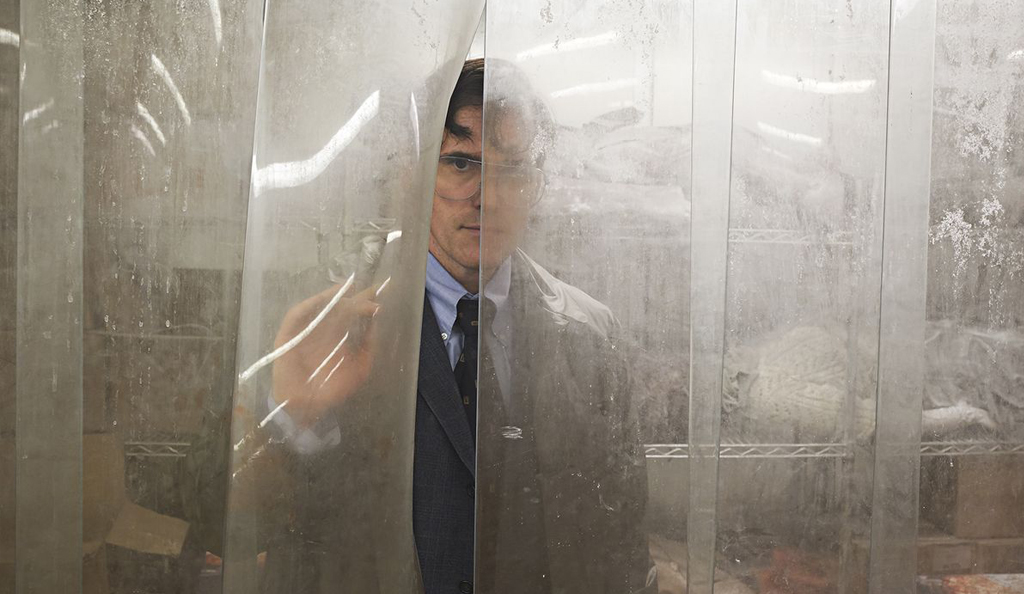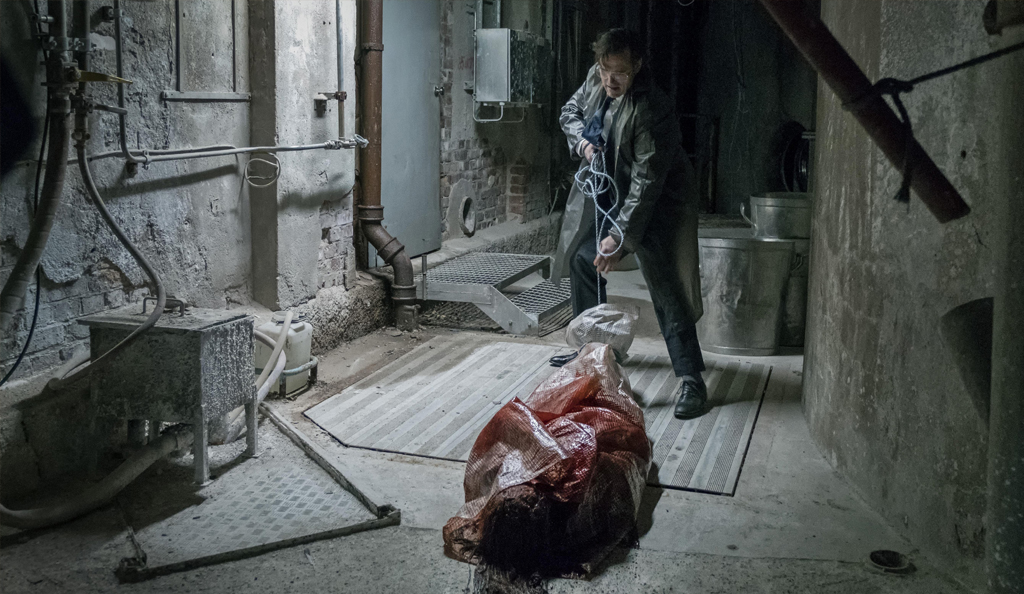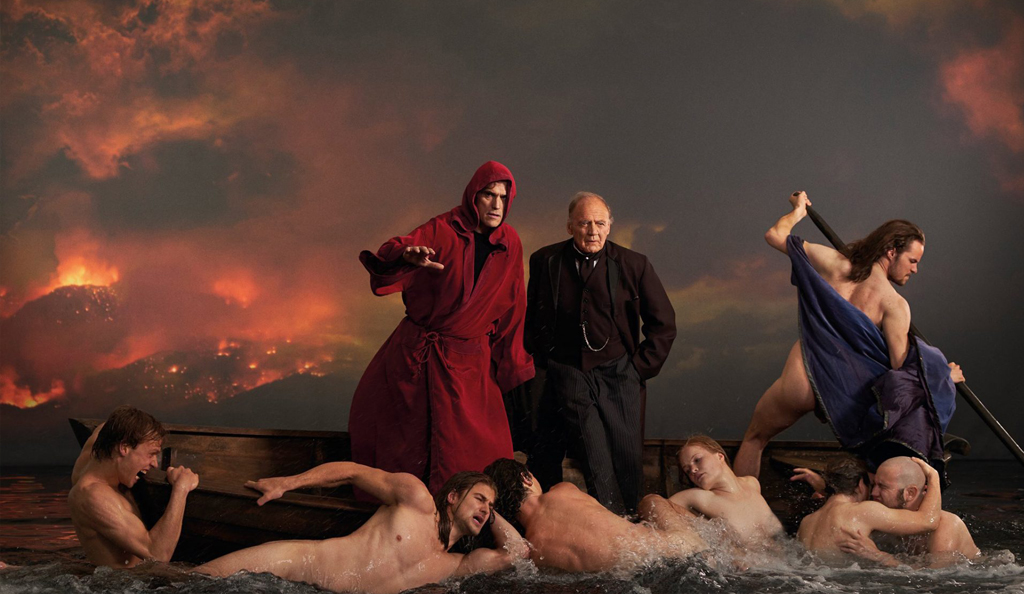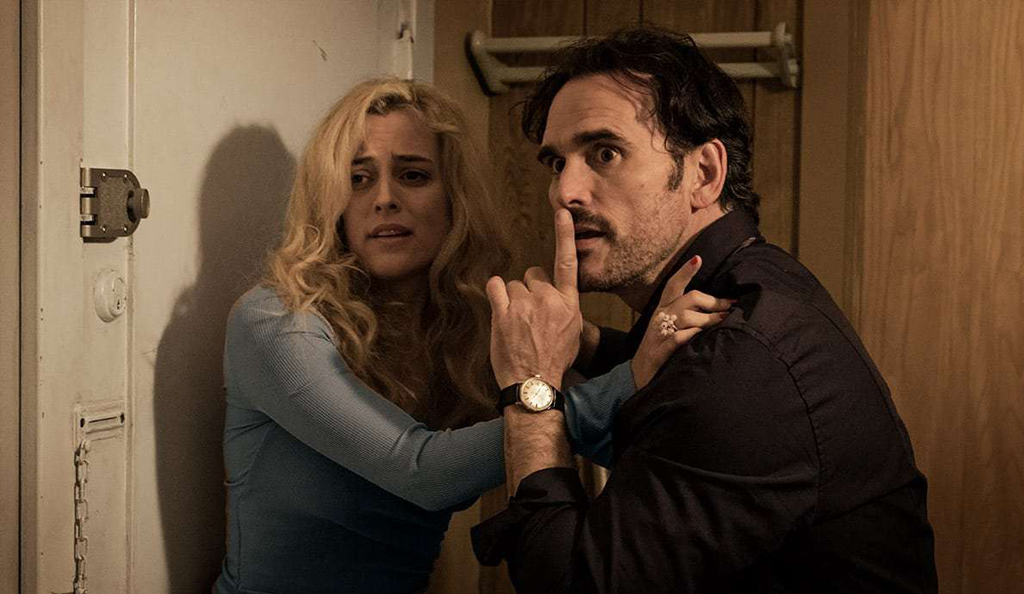Film the House That Jack Built Review London Times
The Firm That Jack Congenital film review The House That Jack Built film review Ella Kemp
People take been talking about The Firm That Jack Built since May 2018. The new moving picture from controversial Danish director Lars von Trier premiered in Cannes, ending a vii-yr ban from the festival (he was deemed a persona non grata afterwards a 2011 press conference in which he said, amidst other things, 'I am a Nazi').
When The Firm That Jack Built screened at the festival, reviews were mixed and walkouts were innumerable, but those who stayed gave information technology a standing ovation. The moving picture tells the story of a serial killer, Jack (Matt Dillon), and the murders – of women, predominantly – that shaped his adult life. To give a balanced assessment of such a divisive film, Culture Whisper sent a male critic and a female critic to run into for themselves.
Gender won't necessarily show an automated alignment with 1 side or the other for every viewer, only you will at to the lowest degree take both arguments before devoting 155 minutes to a flick that, according to its maker, 'celebrates the idea that life is evil and soulless'.

The House That Jack Built brings the mind of Danish filmmaker Lars von Trier back to the big screen
Like Monty Python at their darkest ★★★★★ Euan Franklin
The virtually shocking thing well-nigh The Business firm that Jack Built is how funny it is. It's horrible and gruesome and nauseating to a level that but a veteran punk filmmaker similar Lars von Trier is dauntless plenty to achieve – sleep is difficult in the hours after it's finished, and the imagery sometimes flashes back like a phantom scratch. But, given the circus of grotesque filmmaking, information technology'south yet hilarious.
Washington-based serial killer Jack (Matt Dillon), also known past his stage name 'Mr Sophistication', recounts five 'incidents' over 12 years of fell murder. He speaks to his hallucinatory friend Verge (Bruno Ganz) about his life, his motivations, his morals, and his 'art'. He's an engineer, only really wants to be an architect. He's an creative person without skill. Unable to create art in buildings, as he tries to do with his own house, he finds it in murder.
As with everything associated with von Trier, controversy was quick to seize with teeth. And at that place's plenty to be sickened past: with copious amounts of detailed blood and torture, it makes for an excruciating watch.

A expressionless torso is nothing more than a colour on Jack's canvass
But it'southward necessary. The worst serial killers are horrific people, and often movies have to give them empathy to expand their characters. Not Jack. Jack has no feeling for others, his backstory and those of his victims are suppressed because he simply doesn't intendance. His early memories don't reach far beyond amputating a duck's foot and describing the state mowers of his childhood with Tolstoy-esque detail.
Simply this is where much of the sense of humour comes in. The film is an injection into Jack'south head, his earth is a dark realm of nihilistic pointlessness where a dead body is nothing more than than a colour on his canvass. Once this fear over murder is removed, it'southward funny to watch him struggle in committing an atrocity. In the 2nd incident, he pretends to be a police officer with disastrous results. Afterwards he kills his victim, his OCD forces him to return to the scene of the crime several times. This feels like Monty Python at their darkest.
The Business firm That Jack Built looks like a film that von Trier's been building towards for his entire career – even including a montage of images from his oeuvre like Antichrist and Melancholia in a tangential monologue (Jack makes plenty of those) virtually icons. Everything culminates in a horrifically surreal last act, where Jack burrows away from reality with Dantean direction, 1 frame evoking Théodore Géricault's famous painting The Raft of the Medusa. Like David Lynch for Mulholland Bulldoze and Stanley Kubrick for 2001: A Space Odyssey, von Trier throws everything he has into these last thirty minutes, plunging into the darkest crevices of the virtually anxious nightmare – i that'south hard to wake up from.

Matt Dillon burrows away from reality in The Business firm That Jack Built
An unnecessarily remorseless execution ★★★★★ Ella Kemp
Violence is everywhere, and evil flows in and out of our lives – whether it'southward deserved has picayune to no bear on. Lars von Trier knows this, and he builds the foundations of his film equally a mirror to the world he sees. Penalization doesn't always guarantee redemption, and if it looked similar the director was on the road to damnation in 2011, he'due south now institute hell and is inviting everyone inside.
Jack (Matt Dillon) is talking to Verge (Bruno Ganz) – who could be anyone from a friend, to a doctor or a heavenly spirit above. It doesn't sound like an apology or a confession. Jack is telling the story of the murders that allowed his career to shift, from engineer to series killer, in a way that satisfies his mind and hones his skills like nothing else could. They talk over the ability of fine art, the morals of life, the definition of an icon. They're the ones speaking, narrating a vacant screen at first, only both voices just sound like von Trier.
The director makes Jack seem similar an Action Man, e'er playing with the people he kills. Most victims are women, or rather 'ladies', equally they're officially named: there's Lady ane (Uma Thurman), Lady 2 (Siobhan Fallon Hogan), Lady iii (Sofie Gråbøl), and then there's Unproblematic (Riley Keough). You're told that Jack is highly intelligent, but the flick shows incomplete developments. Poor, gimmicky scripting and weak psychology ignominy the never-ending perversion believed to characterise human being beingness. Jack is self-aware and self-critical, but his obsession stems from insecurity and prevents him from irresolute the world, for improve or worse.
The character is given many epithets – architect, engineer, OCD-sufferer, serial killer – but none have enough meat to make sense, instead frustrating a narrative that is already so indulgent. It feels amazing that anyone is left alive to remember these things up.

Riley Keough is the ane Lady with a name – Simple
'Men are built-in guilty', Jack tells Verge, in a brief explanatory pause in the most traumatic moment of the pic, pinpointing what exactly information technology is that makes the film then repulsive. Whenever there's a crusade to complain, von Trier beats you lot to information technology. A blueprint becomes articulate, after three Ladies have each been afforded a single tear and a grisly finish.
By this betoken, women have been knocked out for 'goddamn blabbering', killed for the sake of curiosity, and hunted like a panting wild brute afterward eating a slab of bloodstained fruit pie. This is a managing director who is more aware than intelligent, more than cruel than cool. The belligerence makes it incommunicable to celebrate any kind of fictional sadism, and it's all the more than troubling when you lot look around the movie theatre and everyone is cackling.
Encarmine corpses lie on 'shitty' pizzas in Jack's killing cave (a walk-in freezer), where layers of frost are creeping in. The identify crystallizes the pulp of Jack's mess, finding some kind of beauty in his inhumane disease. The offence lies not in the subject affair, which has fascinated filmmakers for years, simply in the unnecessarily remorseless execution. Plow to the work of Yorgos Lanthimos – a man who tortures his characters and squeezes a laugh out of those who peer in at them – or wrestle with the listen of David Fincher, dissecting the bulletproof operation of serial killers in Se7en, Zodiac and Mindhunter. Seeing evil isn't the problem; simply the pornographic handling of women, only ever treated as pawns, is inescapably harmful.
The rating of a unmarried star fastened to this review is vital, equally it represents the stimulating discussion the film tin can offer from violent parties anywhere on the spectrum, and it celebrates the qualities of the dedicated, talented actors mentioned above.
Only if von Trier is right and we're already living in hell, why should anyone else go the privilege of f***ing with the thermostat?
Source: https://www.culturewhisper.com/r/cinema/the_house_that_jack_built_lars_von_trier_uma_thurman_film_review/12830